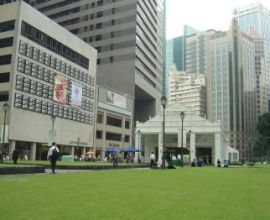|
By Ney Reed Wednesday, 6 December, 2006 In my latest pilgrimage to my foot reflexologist to nurse my back sore from sitting too long in my less than ergonomically designed civil servant seat, my foot reflexologist passed a sarcastic remark. “2.2 months bonus… lotsa money” he remarked. I am sure almost every private sector employee shares the same cynical sentiments. I don’t think the question ought to be if 2.2 months of bonus is too high, enough or too low. Likewise there was a recent announcement that civil service pay will be raised. The question is again not if whether it should be raised or not. There are seriously strong grounds for 2.2 months payout and across the board civil service pay raise in near future. People who criticize it perhaps may have strong grounds too. How much of a raise is sufficient? The real and meaningful question is to ask is if raising civil service salaries, by whatever proportion, or paying out bonuses, by whatever amount, is sufficient. I was telling my foot reflexologist that even if I were to receive 4 months bonus it will not be sufficient. That is not because I am a spendthrift or have four mistresses but rather my cost of living is escalating at an alarming rate that I do not think I can be satisfied with any realistic amounts of bonus or pay rise. My utility will instead be maximized if only rate of growth of costs in Singapore can be controlled.
I was living in Montreal with my wife for a while during grad school with less than $1200 Canadian dollars a month and we had a very comfortable life, dwelling in a rented middleclass area apartment in prime downtown area, ate good food and shopped marginally. It takes me more effort to earn $1200 Singapore dollars but it takes way less effort to spend it and I cannot imagine my wife and myself living that standard of life in Montreal here in Singapore with S$1200 or the equivalent of CDN$1200. Do statistics say anything? Politicians may show me consumer price index or other equally arbitrarily estimated statistics, which can only be factual and hardly be truth or reality. Mahathir had an idiosyncratic but a practical solution to this. He had a campaign called “0% inflation”. Technically speaking, you cannot have 0% inflation though politicians will refer to what we economists refer to really low levels of inflation as 0% inflation. Hence during his period, prices did rise so there was no real 0% inflation but pressure by Malaysian government was constantly applied to ensure prices did not rise fast. There are interesting ways prices rise faster than they should. Some prices have greater impact on aggregate price level of a country. Such prices include that of tea, coffee, cigarettes etc. A mere 10cents increase sends shock waves across the working class population who then start demanding higher prices for their services or labour or goods. Transportation, electricity, gas, petrol costs, indirect taxes also have a similar effect. The responsiveness of other prices to the prices of these is very elastic. Mahathir’s “0% inflation” campaign effectively checked this. Unfortunately in Singapore the trend is reverse. It is these very prices that are rising fast though as I mentioned statistics may or may not show otherwise. Unless we keep a tight check on these prices, the cost of living will indeed continue to rise fast. It always bewildered me when I learnt Singapore is a more expensive place to live than even New York. Till the rate of increase in cost of living in Singapore is checked, the rate of increase in income through pay raises/bonuses will always be a never ending futile catch up game. ——————— About the author Ney Reed, aged 29, a Singaporean, economist by training, considers himself a conceptual analyst, had been an active participant in public-interests & social-interests dialogue groups, anti-globalization movements and Palestinian human rights lobby in North America during his five years’ stay there. Ney has a blog here. |
||
Subscribe
Login
0 Comments




